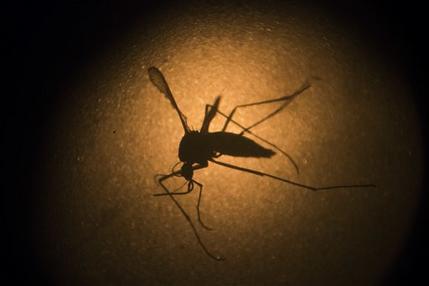-
Tips for becoming a good boxer - November 6, 2020
-
7 expert tips for making your hens night a memorable one - November 6, 2020
-
5 reasons to host your Christmas party on a cruise boat - November 6, 2020
-
What to do when you’re charged with a crime - November 6, 2020
-
Should you get one or multiple dogs? Here’s all you need to know - November 3, 2020
-
A Guide: How to Build Your Very Own Magic Mirror - February 14, 2019
-
Our Top Inspirational Baseball Stars - November 24, 2018
-
Five Tech Tools That Will Help You Turn Your Blog into a Business - November 24, 2018
-
How to Indulge on Vacation without Expanding Your Waist - November 9, 2018
-
5 Strategies for Businesses to Appeal to Today’s Increasingly Mobile-Crazed Customers - November 9, 2018
Zika virus expected to spread in Europe by this summer
World Health Organization is expected to convene a regional consultation in Portugal on June 22-24, 2016 to examine the conclusion of the risk assessment and identify countries’ needs, strengths and gaps in relation to the outbreak prevention.
Advertisement
“In [these] countries in the European region, especially in the Mediterranean basin, there is a moderate likelihood of local Zika virus transmission”, said Dr. Nedret Emiroglu, director of the Communicable Diseases and Health Security Division, WHO Regional Office for Europe.
France is the most likely to have a Zika outbreak among those countries with a moderate risk, because of factors including the density of its urban population, WHO Europe said.
According to the Centers for Disease Control: Zika virus disease (Zika) is a disease caused by the Zika virus, which is spread to people primarily through the bite of an infected Aedes species mosquito.
Brazil has been the epicentre of the Zika outbreak now affecting 58 countries and territories, with around 1.5 million people infected in the country since 2015.
Dr Zsuzsanna Jakab, WHO regional director for Europe, said: “With this risk assessment, we at WHO want to inform and target preparedness work in each European country based on its level of risk”.
More than three months after President Barack Obama requested $1.9 billion in emergency funds to fight the Zika virus, Congress has taken the first step on May 17 to grant it with the Senate passing a compromise $1.1 billion fund.
“[There are] many unborn children who are at risk and many more who will be impacted once mosquito season really sets in”.
Frieden said in an interview with The Associated Press that the House measure would hamper the CDC’s ability to monitor women and babies with the virus over several years, fight the mosquitoes that spread it, and develop better diagnostic tests.
It has also been linked to a rare disorder of the nervous system, Guillain-Barre syndrome, which causes temporary paralysis.
The Zika virus is expected to spread to parts of Europe in late spring and summer, health leaders have said. They also should equip health workers to detect cases early, report them swiftly, and help people at risk – notably pregnant women – protect themselves from infection, it said.
In the USA, the Centers for Disease Control has recorded 500 travel-related cases in the states and D.C., including a handful through sexual transmission, and scientists say the virus could puncture the mainland further once temperatures climb.
The latest figures show a total of 25 cases diagnosed in United Kingdom travellers since 2015.
Women are urged to avoid pregnancy before travel to Zika areas and take special precautions if travel can not be delayed. Although the 2013-15 Ebola epidemic in West Africa has been controlled, health officials say new outbreaks of the deadly disease could occur.
Advertisement
The U.S., he warned, needs to start protecting pregnant women from Zika-for economic reasons as well as humane ones.





























